The Benefits of Smart Charging for an Electric Vehicle Fleet
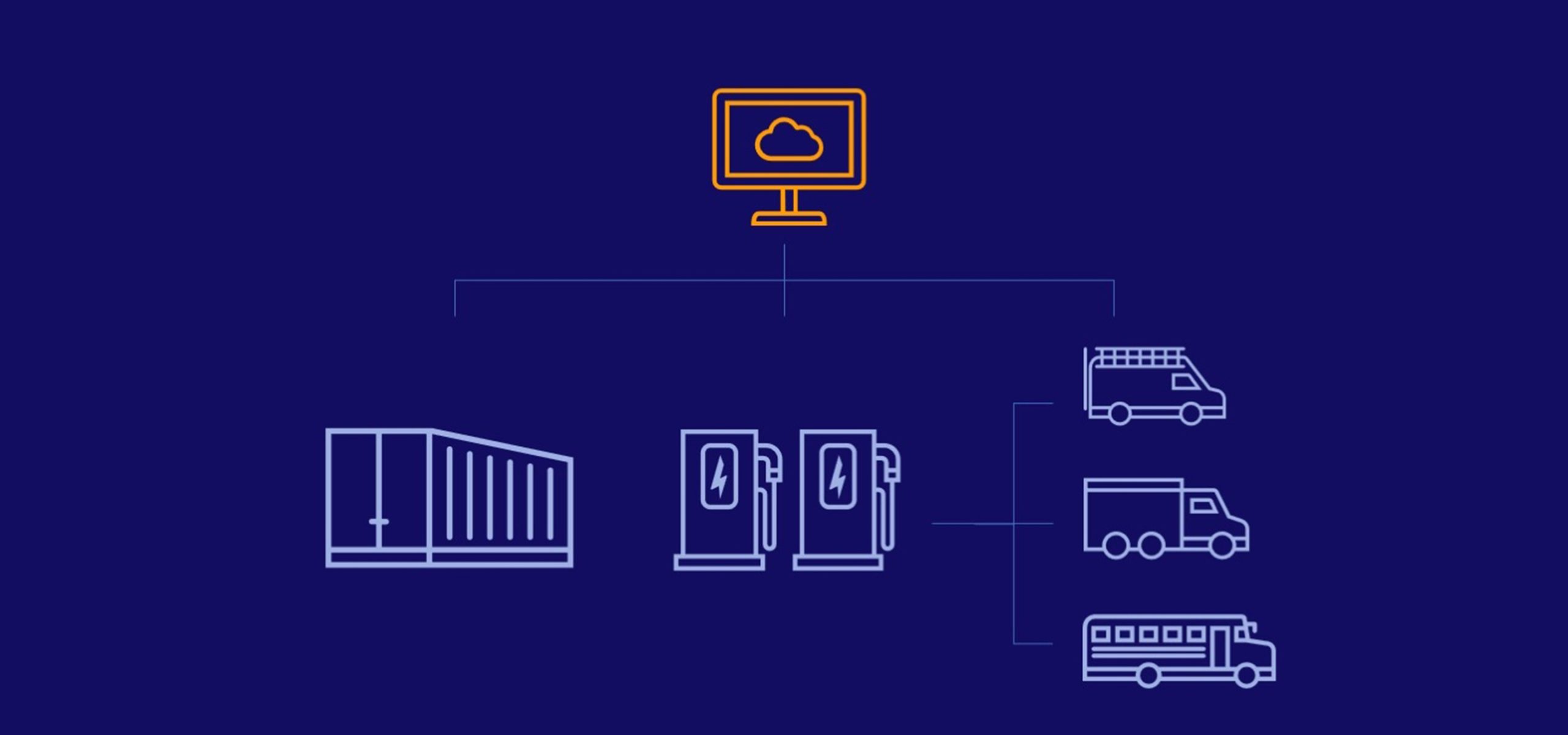
When a carrier thinks about going electric, the choice of vehicles is the first thing that comes to mind, followed shortly by the installation and operation of the infrastructure to charge them. But what about energy management? How do you ensure the reliability of vehicle charging, while minimizing the cost of electricity? As you might have guessed, the answer is to plan and execute smart charging.
What is a smart charging plan?
Let’s first define what a charging plan is. A charging plan is made up of two components: the time slots during which the vehicle will be charged and the power at which charging will occur during each time slot.
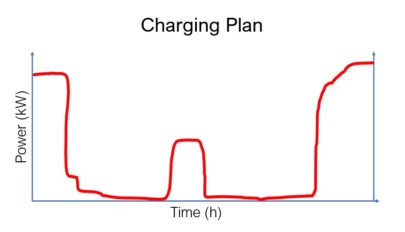
Power is the rate at which energy is exchanged, and is expressed in kilowatts (kW). In the case of charging power, this value could be compared to the flow of a faucet filling a bathtub. One kilowatt represents the speed to charge one kilowatt-hour (kWh) in one hour. For example, level 2 charging stations typically provide between 7.2 kW and 19.2 kW of power, while for fast chargers (DCFC), the power can be 24 kW, 50 kW, 100 kW and more.
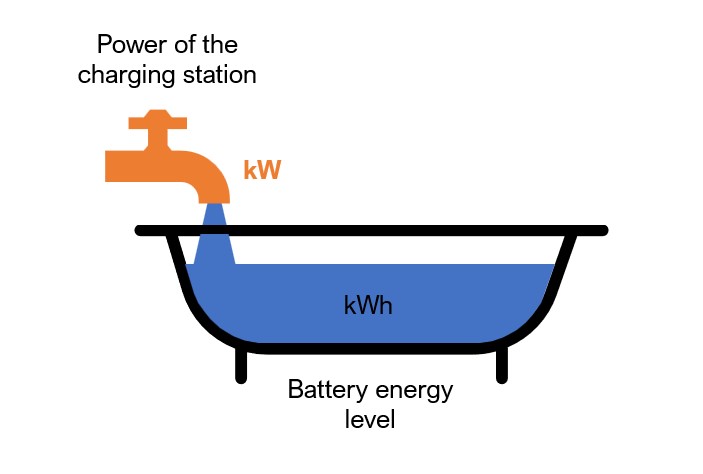
The goal of the charging plan is to ensure that the vehicle will have enough energy to complete its routes. A charging plan can be optimized to reduce electricity costs, it can also be dynamic and intelligent, but let’s put these ideas to rest and come back to them later.
To create a charging plan, it is imperative to analyze the energy needs of a vehicle based on the number of kilometres it will be driven. The topography of the terrain, city or highway driving, the driver’s eco-driving habits and the weather forecast are also elements that will influence the vehicle’s energy needs, but integrating these components into the plan can be complex to do manually (solutions, as you can imagine, will be explored later in this article).
Next, it is necessary to identify the charging opportunities, namely the periods during which the vehicle is back at the terminal. Finally, knowing the energy needs of the vehicle and the charging opportunities, it is possible to calculate the power required at each charging session so that the vehicle has the energy necessary to complete its routes. All that remains is to repeat the operation for each vehicle in the fleet and to update the plans each time an element changes. A nice challenge when you have a dozen vehicles, an impossible task when you manage a large fleet. And what about the power demands generated by all these vehicles charging at the same time!
What does a power demand eat in winter?
In Quebec, electricity is billed according to the amount of energy consumed (kWh), but also according to the highest power used (kW). The maximum power demand during the year will have an impact on your rates for the entire year. For example, if you plug in all your vehicles at the same time for 15 minutes or so, and this is the highest power demand you have made in the year, you will be billed accordingly. So it’s important to reduce your maximum power demand if you want to get the lowest rates possible.
What about intelligence?
To integrate the concept of intelligence into the charging of vehicles in a fleet, the use of a software platform is essential. Platforms vary in their functionality, but here is a snapshot of the features that will give you the most benefit.
Interconnection With Your Ecosystem
If you already use IT tools to manage your business, a smart charging management platform can easily connect to them to simplify your task. This integration allows you to dynamically collect the data needed to produce charging plans from these systems: route planning software (kilometres to be driven and charging opportunities); vehicle maintenance software (repair schedules); on-board vehicle telemetry (battery state of charge and eco-driving performance); on-board charging station software (status and diagnostics), web portal for weather forecasts, etc.
When comparing the different platform options available on the market, make sure you choose a solution that is interoperable with all types of charging stations, on-board telemetry and fleet management systems, so that you can diversify the manufacturers and suppliers you do business with. Technologies are evolving rapidly in this fast-paced market, and you don’t want to see your choices restricted by the limited compatibility of your platform.
Optimized Charging Plans
The use of algorithms finally allows us to predict the energy needs of vehicles and to generate optimized charging plans. These plans sequence the charging according to the operational requirements of your vehicles, while minimizing the maximum power demand to reduce your electricity bill. The power of the charging stations can be adjusted. For example, a 50 kW charging station can perform a charging at a reduced power of 20 kW, if the available charging time allows it, and thus avoid a power demand. The platform is able to remotely control the charging stations in order to orchestrate the charging for your entire fleet and even for all your sites.
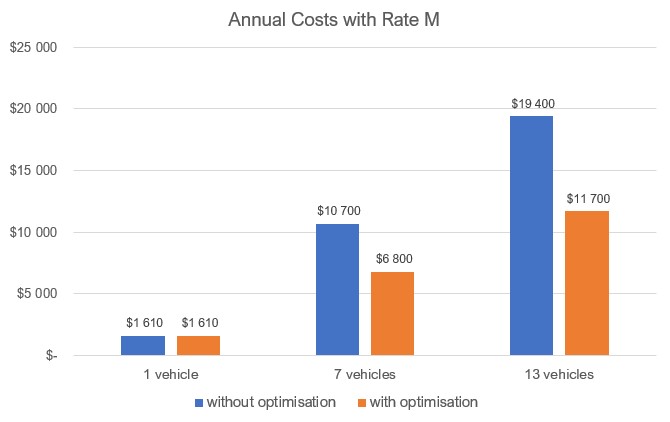
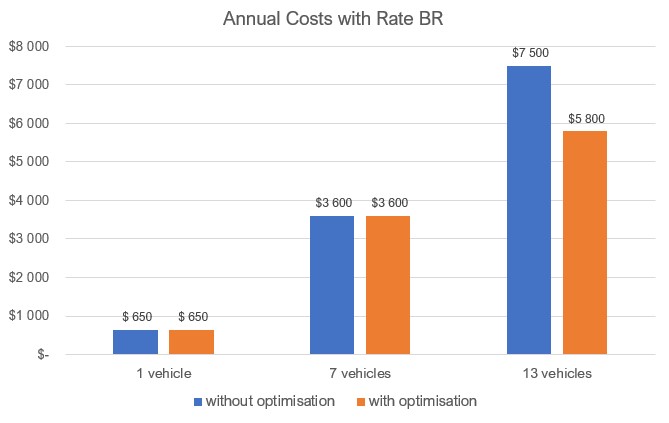
The importance of having a plan B
Managing a fleet of electric vehicles includes its share of unexpected events. Whether it is the additional kilometres on a route, the higher than anticipated energy consumption of a vehicle, or the failure of a charging station, your vehicles must still be sufficiently recharged to complete their routes. A good plan must therefore include contingency and be dynamic in order to adjust in real time to guarantee the charging of your vehicles at the lowest cost, without any intervention on your part. A platform with advanced artificial intelligence techniques can generate resilient and optimized charging plans, even in complex situations, so you can get on with all the other tasks that occupy your busy day. Your drivers will always hit the road worry free, with the assurance that they will be able to complete their planned tasks, and you will be alerted by the system to any situation that could increase your operating costs.
Did you know?
Hydro-Québec offers charging solutions for electric vehicle fleets. This initiative arose from the needs often expressed by commercial vehicle operators, who are looking for independent expertise and customized support in making the shift to electric vehicles. Our goal is to provide carriers with the solution that best meets their current and future needs so they can make their transition to electric vehicles as successful as possible. For more information, visit our website.
Continue reading on this subject

The challenges of designing a 40-tonne, 100% electric mining vehicle for open-pit mines
Partnerships and implications The partners involved in the development of a 100% electric Quebec mining vehicle were all eager to be involved with the project from the outset, for a variety of reasons. NRC’s Eddy Zuppel explained their contribution: “Before starting the project, it was important to model and simulate the vehicle’s route in order […]
Read more
Energy efficiency: Financial support to put your ideas into action
Leading a company involves balancing several priorities at the same time. Energy efficiency? It’s an important issue—one of many! What if we gave you what you need to make energy efficiency a driving force behind your company’s performance and profitability? The good news is, Hydro-Québec offers financial assistance and guidance to help you balance performance and energy efficiency.
Read more
My Consumption Profile: data that lets you strategically manage your electricity use
Companies have a critical role to play in the energy transition. Knowing that energy efficiency factors big into profitability, your organization will benefit from strategically managing its electricity use. The key? Your data!
Read more
Electrifying school bus fleets : Grants available to support your project
In this series of articles, we demystify the key steps of converting your school bus fleet to electric power thanks to the Transporteur+ guide. This guide aims to provide easy and direct access to resources to clarify the steps, issues, conditions and facilitating measures for a successful transition to electrification.
Read more
Electrifying school bus fleets | Key step : Comissioning
In this series of articles, we demystify the key steps of converting your school bus fleet to electric power thanks to the Transporteur+ guide. This guide aims to provide easy and direct access to resources to clarify the steps, issues, conditions and facilitating measures for a successful transition to electrification.
Read more
FINANCING | $50 million from Finalta Capital in non-dilutive financing dedicated to the Electric and Smart Transportation sector
Fast growing, innovative companies from the electric and smart transportation (EST) sector in Québec take advantage of the $50 million in funding dedicated to the EST ecosystem by Finalta Capital, one of Canada’s largest funds specialized in non-dilutive tax credit and government grant financing, announced in March 2023 as part of the Impulsion conference, the International EST Summit organized by Propulsion Québec.
Read more
Demand response: Save money by using hydro at the right times
If you could lower your company's hydro bill while contributing to the collective effort to support Quebec’s energy transition, would you? Yes, most likely! How? By curbing power demand for buildings and equipment during peak demand events.
Read more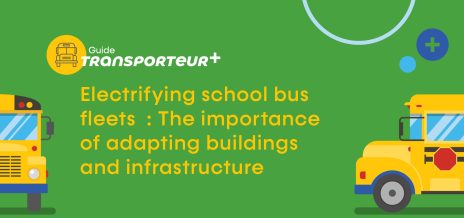
Electrifying school bus fleets : The importance of adapting buildings and infrastructure
In this series of articles, we demystify the key steps of converting your school bus fleet to electric power thanks to the Transporteur+ guide. This guide aims to provide easy and direct access to resources to clarify the steps, issues, conditions and facilitating measures for a successful transition to electrification.
Read more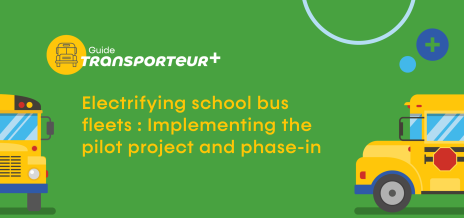
Electrifying school bus fleets : Implementing the pilot project and phase-in
In this series of articles, we demystify the key steps of converting your school bus fleet to electric power thanks to the Transporteur+ guide. This guide aims to provide easy and direct access to resources to clarify the steps, issues, conditions and facilitating measures for a successful transition to electrification
Read more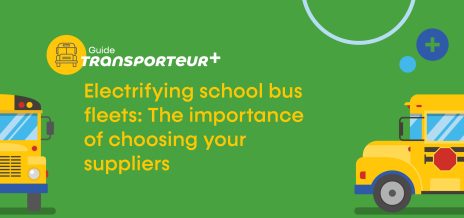
Electrifying school bus fleets: The importance of choosing your suppliers
In this series of articles, we demystify the key steps of converting your school bus fleet to electric power thanks to the Transporteur+ guide. This guide aims to provide easy and direct access to resources to clarify the steps, issues, conditions and facilitating measures for a successful transition to electrification.
Read more
The key to a successful school bus fleet electrification project
In this series of articles, we demystify the key steps of converting your school bus fleet to electric power thanks to the Transporteur+ guide. This guide aims to provide easy and direct access to resources to clarify the steps, issues, conditions and facilitating measures for a successful transition to electrification.
Read more
FLO®: sparking change, one charge at a time
FLO became a leader in electric vehicle (EV) charging in North America by integrating the process from start to finish: manufacturing charging stations, developing software and managing its network. To stay ahead of the curve in a fast-moving, innovation-driven market, the company turned to the Fonds de solidarité FTQ to support its growth.
Read more




